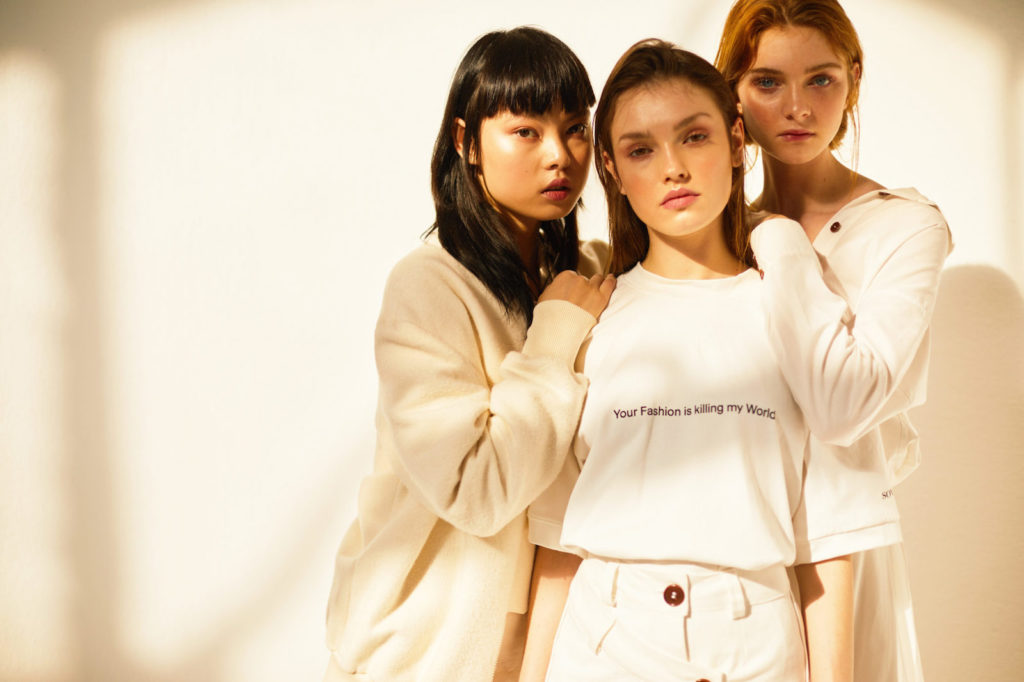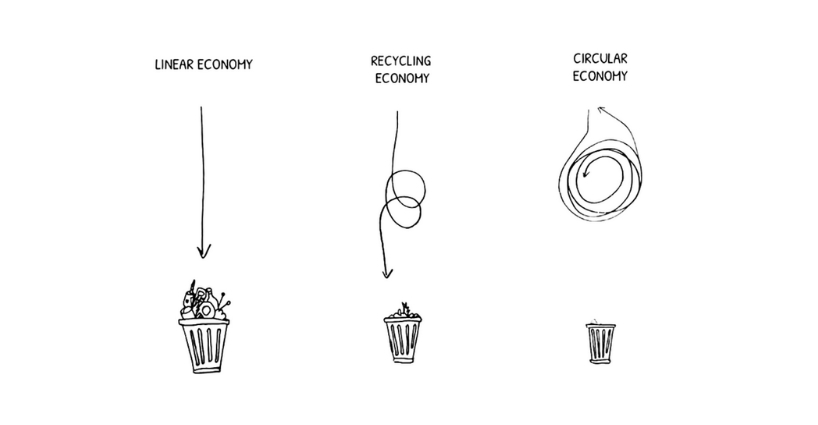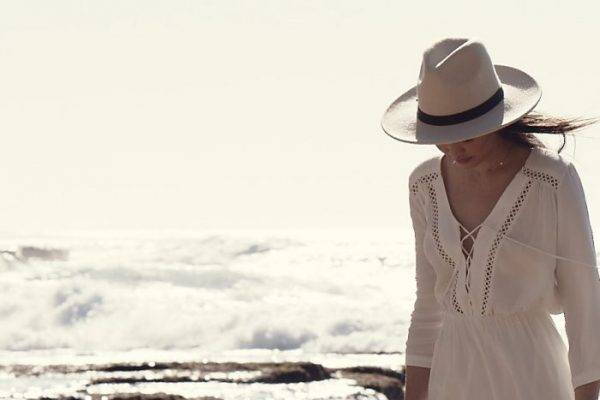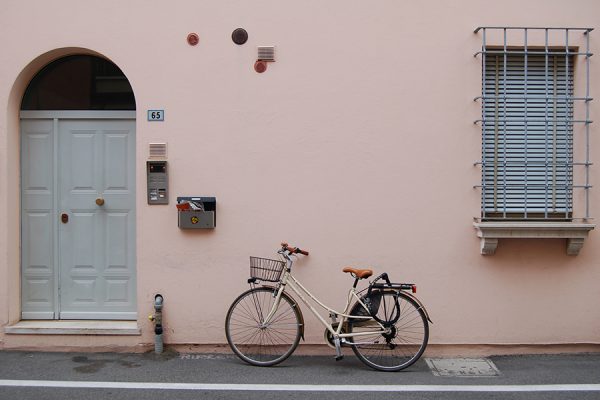The first ethical fashion swap I made was my underwear.
The feeling of hitting ‘checkout’ and ordering underwear that wasn’t made by people enslaved or with unsustainable materials, was thrilling, to say the least. I thought I was the bee’s knees, the absolute king of the castle. It was about 4 years ago, so it’s hard to remember, but I probably even patted myself on the back.
Yet now I think about it, I had absolutely no clue what sustainable fashion meant when I bought the underwear.
Image via Sonia Carrasco

If I looked past Kate in the eye as she made that purchase, I would be mad at her for not asking these questions before making the purchase:
- Do I need these undies?
- Where will they go at the end of their life?
- How can I avoid the underwear from being created in the first place, and use another resource instead?
From this underwear reflection experience (a phrase I never thought I’d say), I’ve realised the most important part of sustainability, when it comes to everything, not just fashion, is changing our habits and mindset. We need to change the ‘HOW’ rather than the ‘WHAT’. This is the only way we’ll save our planet and people, and ultimately not die in 12 years time.
THE PROBLEM
Our current consumption model is linear. We create items, use them, then discard them. Sometimes we recycle them a few times, but it’s imminent they’ll end up in landfill. We see items for their dollar sign, not their value to humanity. We see cost as a monetary value, not as the cost to the planet or people.

Image via Our Good Brands
For example, consider a cotton t-shirt bought for $5 with a fresh rip in it. Our current societal mindset says “throw it away”. $5 is only the price of a coffee; it makes financial sense to get another one, rather than spend time finding someone to repair it, and potentially pay them even more than $5 for the repair. However, the time taken to make that t-shirt, and the amount of cotton striped from fields, comes at a far greater cost to the people who made it and planet who lent its resources. If the t-shirt ends up in landfill, it’s instantly taken out of our resource pool, a cost we’ll never get back.
HOW WE’RE TRYING TO FIX IT
We’re attempting to swap unsustainable materials and workplace practices, for sustainable ones. It’s exciting to see mainstream brands begin to use sustainable fabrics like organic cotton, and increase their workers’ rate of pay and work environment standards. They’re getting on board with compostable courier bags, making sure their dyes don’t damage waterways and gaining certifications that indicate their workers receive regular lunch breaks and overtime pay.
As a human race, we’re putting a lot of thought into how we can change WHAT we consume. But I don’t think that’s the most sustainable way forward.
HOW I THINK WE SHOULD FIX IT
I don’t have all the answers, but I’ll try my best. We need to change the HOW. We’re currently talking about sustainability as if it’s simply a change in the materials we use and the people who make them. It’s not.
Sustainability is a mindset and system change. It involves viewing each and every item as a valuable resource to society and making careful and conscious purchases that ensure our planet’s resources are not abused, and neither are our people. Sustainability begs us to ask the question: If I were to keep doing this over and over again, how would the planet and people be affected?
If I were to continue shopping at the rate I was 4 years ago, but swap out my purchases from Kmart with purchases at sustainable fashion brand KowTow, that would be unsustainable. If I were to continue wasting food at the rate I was 4 years ago, but it all be organic, plastic-free, and locally grown food that I threw into the rubbish bin, that would be unsustainable.
Sustainability means slowing down. Sustainability means considering your actions. Sustainability questions the WHAT, but is ultimately the HOW. We need to change the system, not our underwear.


